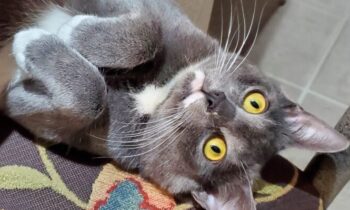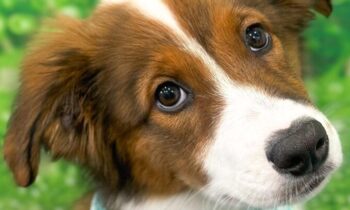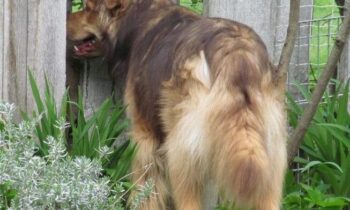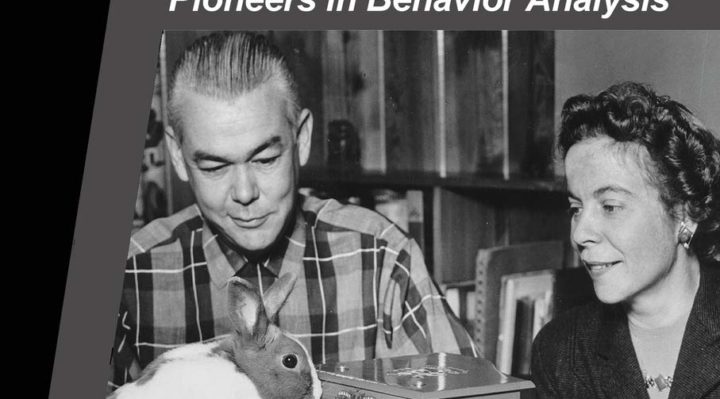
Would you like to know more about animal training today? You can start at your local public library—online!
On the hoopla Digital app, which may be available through your local public library, you can borrow the ebook of “Animal Behavior” by Keller Breland and Marian Breland, first published in 1966, republished in 2018.
Animal Behavior (2018) by Keller Breland and Marian Breland
Special Foreword by Robert E. Bailey ScD.
All effective modern animal training has a common basis: the discovery of “operant conditioning” by B.F. Skinner. Assisting in this research were Keller & Marian Breland, graduate students of Skinner who continued to develop the science into a systematic method for training animals. They documented their work in the seminal text, Animal Behavior, first published in 1966 but out of print for decades. This historic book brought the Brelands’ research to the world.
In 2018, Animal Behavior was republished by Storymakers, Inc., with a slate of historic photographs and a special introduction by Dr. Robert E. Bailey, ScD.—esteemed colleague of the Brelands and first Director of Training for the U.S. Navy Marine Mammal Training Program. Dr. Bailey’s introduction provides historic context for the contribution of the Brelands’ work to behavior science.
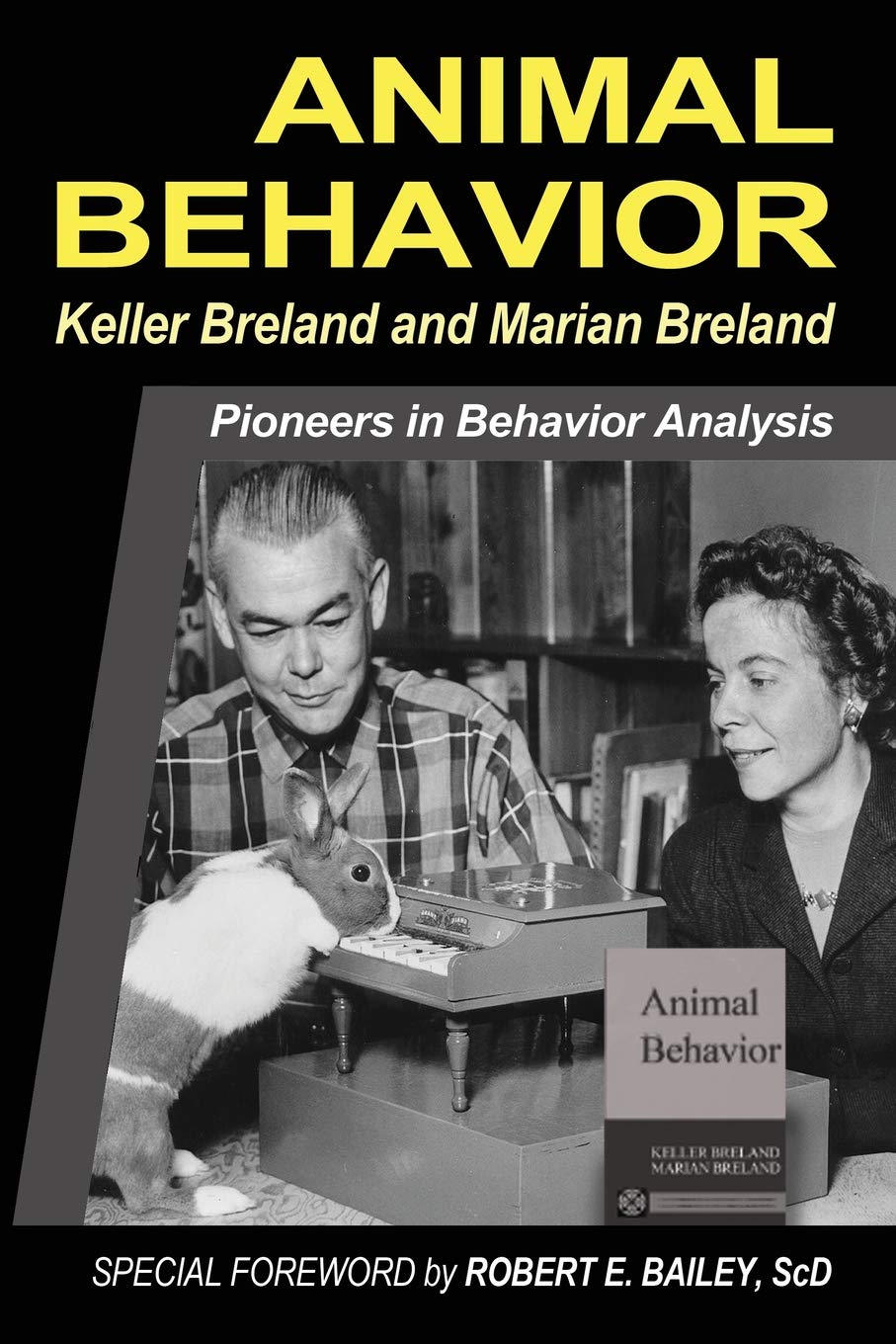
Who were Keller and Marian Breland?
In 1937, [Keller Breland] earned a BS in psychology from Millsaps College in Jackson, Mississippi, and followed that with an MA in psychology at Louisiana State University in 1939. While a doctoral student in industrial psychology at the University of Minnesota, he met Marian Ruth Kruse. Their first meeting involved animals, specifically a rat. The story is that Marian was running down a hallway after being bitten by a laboratory rat and literally ran into Keller. They were married on August 1, 1941, and had three children, Bradley (1946), Frances (1948), and Elizabeth (1952).
In the 1940s, operant conditioning, the provision of positive or negative consequences following a behavior to increase or decrease the occurrence of the behavior, was in its infancy. During graduate school at the University of Minnesota, both Keller and Marian were students of B.F. Skinner, the famous behavioral psychologist. The Brelands assisted Skinner on Project Pigeon, the World War II effort that trained pigeons to guide bombs. During this project, Breland witnessed the power of operant methods to train animals efficiently to perform complex behaviors. (The pigeon-guided missile system worked but was never used.) He became convinced that he and his wife could make their living using operant psychology to train animals. Thus, against the advice of Skinner and their peers, the Brelands left the University of Minnesota (prior to completing their degrees) and, on a small farm in Mound, Minnesota, started the first commercial application of operant conditioning, Animal Behavior Enterprises (ABE).
The Brelands’ first contracts were with General Mills to train animals for farm feed promotions. As ABE became more successful, they outgrew their farm and began looking for larger quarters. As a Southerner, Keller hated cold weather, so in 1950, he and Marian moved ABE to a large farm in Lonsdale (Garland County), outside Hot Springs. This central Arkansas location also offered access to railroad connections for shipping animals across the country, as well as connections to the thriving tourist business in Hot Springs.
In 1955, Keller and Marian opened the IQ Zoo at 380 Whittington Avenue in Hot Springs (it was later moved to 422 Central Avenue). The IQ Zoo featured a showcase of animals trained by the Brelands and served as a training facility. Popular acts included chickens that walked tightropes, dispensed souvenirs and fortune cards, danced to music from jukeboxes, played baseball and ran the bases; rabbits that kissed their (plastic) girlfriends, rode fire trucks and sounded sirens, and rolled wheels of fortune; ducks that played pianos and drums; and raccoons that played basketball. The History Channel rated the IQ Zoo one of the most popular roadside tourist attractions during the twentieth century.
The popularity of the IQ Zoo brought Keller and Arkansas to the attention of the commercial animal training industry. In the 1950s, he and Marian developed the first operant-based marine mammal and bird shows for Marineland of the Pacific, Marine Studios, and Parrot Jungle. Keller and his animals also appeared on numerous television programs, such as Ed Sullivan, Dave Garroway, Jack Paar, Steve Allen, Zoo Parade, You Asked for It, and Industry on Parade. Animal trainers from across the country came to Hot Springs to learn the Brelands’ techniques. Today, the animal training programs at most major theme parks and oceanariums, such as Sea World and Busch Gardens, can be traced back to Keller and Marian Breland.
—The Encyclopedia of Arkansas
https://encyclopediaofarkansas.net/entries/keller-bramwell-breland-2530/

The late Sophia Yin summed up the importance of the Brelands’ historic work:
“In the early 1900’s, B.F. Skinner was working out the technology of operant conditioning. He wrote a landmark book called The Behavior of Organisms that described the paramaters for the field of Behavior Analysis. His studies on rats and pigeons changed how we view learning in animals today. But it was two of his graduate students, Keller and Marian Breland, who applied that research to widespread practical use. In 1947, they started a hugely successful business called Animal Behavior Enterprises with the goal of demonstrating that there’s a better, scientific, technologic way of training animals and it need not use punishment. Their effort was to train animals in a humane way with less aversives. By taking concepts and principles learned from the lab, they were able to mass-produce trained animals and to ‘outstrip old-time professional animal trainers in speed and economy.’ Over the course of 47 years, ABE trained over 15,000 animals and 140 species for the military, TV, trade shows, conferences, research, and for their theme park, IQ Zoo, which they opened to showcase their trained animals. Four years after inception they published their findings in American Psychologist. In just a short period of time, they had developed the field of Applied Animal Psychology, or behavioral engineering.”
“Keller and Marian Ireland Create the Field of Applied Animal Psychology”
by Sophia Yin, MS, DVM (1966–2014)

